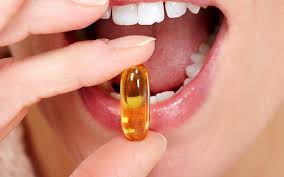
Medications are an integral part of managing various health conditions. Many people may not realize that certain medications can influence oral health. In this blog, we explore the connection between medications and oral health. We highlight the potential effects of medications on your teeth and oral well-being. We will also discuss the signs that mean medications may be affecting your oral health. We provide actionable insights on how to prevent medication-related issues.
Understanding the Relationship Between Medications and Oral Health
Some medications can reduce the production of saliva in your mouth. This can lead to a condition known as xerostomia. Saliva plays a crucial role in maintaining oral health. It rinses away food particles, neutralizes acids from bacteria, and aids in digestion. When medications compromise the production of saliva, people may have dry mouth. It also brings an increased risk of tooth decay and a higher risk of oral infections. Certain medications, both prescription and over-the-counter, can lead to certain dental issues. Tooth decay and gum problems are the most common dental issues. For instance, tetracycline antibiotics and specific antihistamines can lead to tooth discoloration. It can also lead to damage to tooth enamel. Some medications can also lead to gum inflammation, causing discomfort.
Signs That Your Medications Are Affecting Your Oral Health
If you always have a dry mouth, it could be a sign that your medications affect your saliva production. Persistent dry mouth can lead to difficulty swallowing and other dental issues. If you have these, talk to your doctor about potential medication-related side effects. Be on the lookout for tooth sensitivity, changes in tooth color, or enamel erosion. These are all signs of medication-related effects on your oral health. These symptoms warrant attention. You may need to change medication management to reduce the impact on oral well-being. Pay attention to increased gum sensitivity, inflammation, or bleeding during brushing and flossing. This could signify the influence of medications on your gum health. Track changes in gum condition and consult with a dentist. They can help address medication-related oral health concerns.
Preventing Medication-Related Issues to Your Oral Health
Consult Your Healthcare Provider
When prescribed new medications, talk with your doctor about any potential side effects. Be sure to ask about any oral health implications of this medication. Discussing the side effects allows you to be proactive with your health. You can also explore alternative options when available.
Maintain Optimal Oral Hygiene
Follow a consistent oral hygiene regimen. This should include regular brushing, flossing, and fluoride oral care products. It helps to mitigate the potential effects of medications on oral health. Practicing diligent oral hygiene can help reduce the risk of dental problems.
Regular Dental Check-Ups
Routine dental check-ups can detect any medication-related effects on oral health. Dental professionals can offer personalized guidance and preventive interventions for your needs. This ensures comprehensive care and proactive management of medication-related concerns.
Contact Us
Understanding the impact of medications on oral health is pivotal for your health. It’s important to recognize the potential effects of medications on your oral health. Be mindful of warning signs and take preventive measures. By taking these steps, you can safeguard their oral health amidst medication management. If you need help with your oral health, contact Magnolia Dental today.

